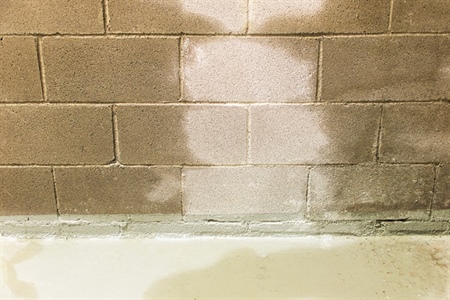How to Address Foundation Issues Uncovered in a Home Inspection?

When purchasing or selling a home, a home inspection often reveals issues that require attention, and foundation problems are one of the most critical. Foundation issues can range from minor cracks to severe settling, and addressing these problems is essential for the safety and longevity of the property.
Homebuyers and sellers alike must understand the implications of foundation issues uncovered during an inspection. Whether you're a prospective buyer or a current homeowner, it's important to learn how to deal with these concerns efficiently and effectively.
In this article, we will explore how to address foundation issues uncovered in a home inspection by answering several key questions. We hope these answers will provide a comprehensive understanding of how to tackle foundation problems to maintain your property’s value and safety.
What Are the Most Common Foundation Problems Found During Inspections?
Foundation inspections often reveal a variety of common problems, including cracks in the walls, uneven floors, and signs of water damage. Wall cracks are typically the most visible issue, signaling potential movement in the foundation. Settling or shifting foundations can also lead to sloped floors, which may be more challenging to detect but are equally concerning. Water damage is another major issue that can weaken the structural integrity of a foundation, especially if it leads to erosion or compromises the materials used in the foundation.
Other issues like bowing walls or sticking doors and windows can also indicate underlying foundation problems. Home inspectors focus on identifying these issues to ensure that homeowners are aware of any structural risks. If you suspect your home may have foundation problems, a professional foundation inspection can provide clarity on the extent of the damage.
How Does the Age of a Home Affect the Likelihood of Foundation Issues?
The age of a home plays a significant role in the likelihood of experiencing foundation issues. Older homes, especially those built before modern building codes and construction standards, are more prone to foundation problems. Homes that have stood for several decades may have foundations that have settled unevenly, or they may have been built with materials that deteriorate over time.
Additionally, the longer a house has been exposed to environmental factors like water, frost, and soil expansion, the greater the chance that foundation problems will arise. Modern homes, on the other hand, are often constructed with more advanced materials and techniques that reduce the risk of foundation problems, but they are not entirely immune. Any home, regardless of its age, can develop foundation issues due to poor drainage, seismic activity, or soil instability.
What Are the Repair Options for Addressing Cracked or Settling Foundations?
When foundation cracks or settling is detected, various repair options are available depending on the severity of the damage. For minor cracks, sealing or waterproofing the foundation may be sufficient to prevent further deterioration. Epoxy or polyurethane injections are commonly used to fill cracks and protect against water intrusion.
For more significant issues, such as severe settling, foundation underpinning may be required. Underpinning involves reinforcing the foundation with steel piers driven deep into stable soil to provide additional support. Another option is slab jacking, where a grout mixture is injected beneath the foundation to lift and level it.
The best repair option depends on the underlying cause of the foundation problem, and a professional contractor can help assess the situation and recommend an appropriate solution.
How Do Foundation Issues Impact Property Resale Value?
Foundation issues can significantly affect a property's resale value, as they are a major red flag for potential buyers. Even minor foundation problems can raise concerns about the home's structural integrity, making it harder to sell. In many cases, buyers will ask for a reduction in price to cover the costs of repairing the foundation issues, which can result in a lower return on investment for sellers.
In severe cases, foundation problems may prevent a sale entirely, as some lenders will not finance homes with unresolved structural issues. It is critical to address foundation problems as soon as they are uncovered to preserve the property's marketability and resale value.
When Should You Consult a Structural Engineer for Foundation Concerns?
Consulting a structural engineer is essential when foundation problems are severe or when the cause of the issue is unclear. Structural engineers are trained to assess the integrity of a building and provide expert recommendations on how to address foundation issues. If your home inspection uncovers significant cracks, settling, or other major concerns, it’s wise to seek the advice of a structural engineer before proceeding with repairs.
In some cases, local building codes may require an engineer’s report before making foundation repairs. Additionally, consulting a structural engineer provides peace of mind, ensuring that the repair solutions are safe and long-lasting.
Foundation issues uncovered during a home inspection can be a daunting discovery, but with the right knowledge and approach, homeowners can effectively address these concerns. From identifying common foundation problems to knowing when to consult a structural engineer, it’s important to take proactive steps to protect your property’s value and safety.
Identify Foundation Issues With DMC Home Inspections
If you're dealing with foundation problems or simply want peace of mind about your home's structural integrity, DMC Home Inspections offers professional foundation inspections to help homeowners assess and resolve potential issues. We're ready to assist you with any foundation concerns or inspection needs!
Contact us today for expert advice and solutions tailored to your specific needs. We're also located at 7425 River Shore Ln, Champlin, MN 55316, and available via phone at 612-310-1692 for immediate assistance!